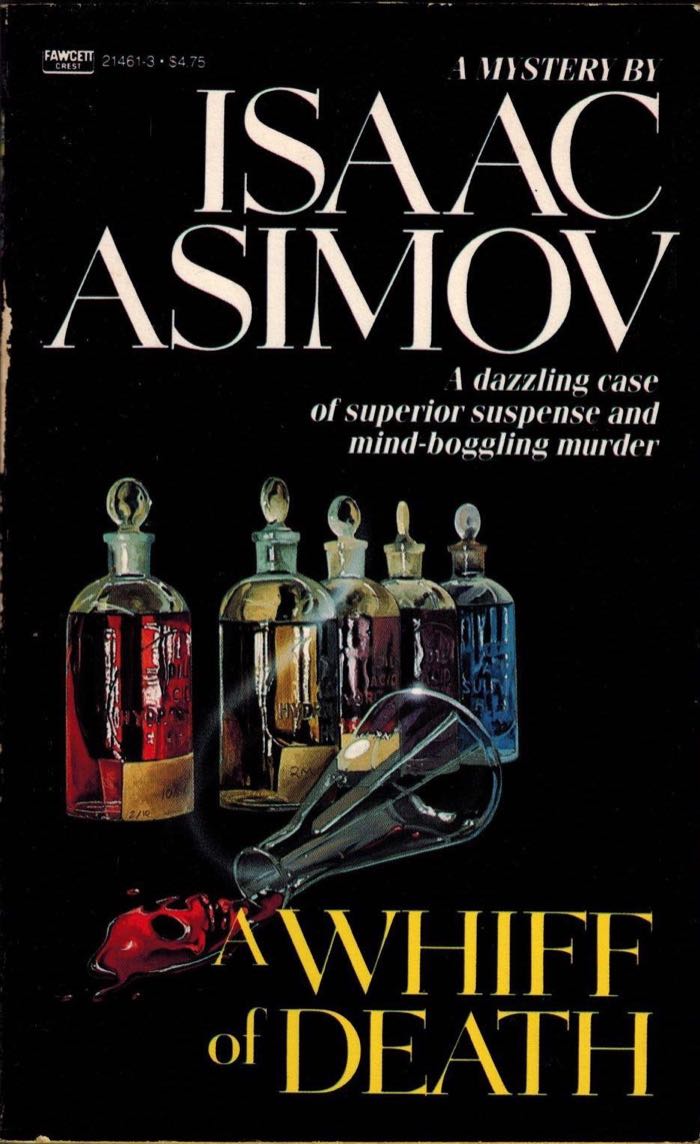A Whiff of Death
Reviewed date: 2007 Mar 31
Rating: 4
191 pages
I don't often read murder mysteries, but I liked A Whiff of Death. Asimov writes about something he knows: chemistry professors and universities. A Ph.D. student has died in the chemistry lab. At first it appears to be an accident, but Dr. Louis Brade knows it was murder. The problem is, only one person would have known precisely how to murder Ralph Neufield, and that is Professor Brade himself. Brade knows that his colleagues will see the facts and eventually come to the same conclusion, so he works quickly and desperately to clear his name by discovering the real murderer.
I enjoyed the mystery in A Whiff of Death, but the culture of academia is distasteful. As a capitalist who believes in at-will employment, I find the whole concept of tenure distasteful. Professor Brade takes great lengths to secure tenure, because he craves the security it brings. Nathaniel Branden essay "The Divine Right of Stagnation" comes to mind; Brade--and his fellow academicians--believe that the university owes them permanent, lifetime employment. Nowhere else is such security expected. In the real world, in industry--where much of the real research is done--there is no concept of tenure.
I understand there are benefits to tenure: it allows professors the freedom to express their ideas without fear of losing their jobs. It is a boon to free speech. Tenure may be useful tool in the field of philosophy, religion, or political science, but not so much for chemists, I suspect. Fortunately, Professor Brade comes to a kind of understanding at the conclusion of the novel: he conquers his own insecurities, and realizes he no longer needs the security blanket of tenure.
